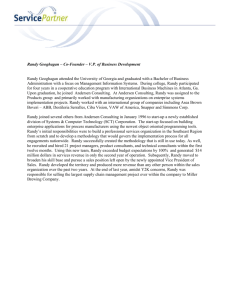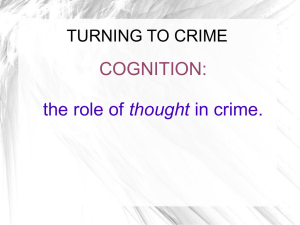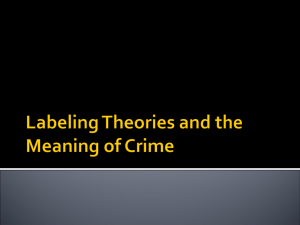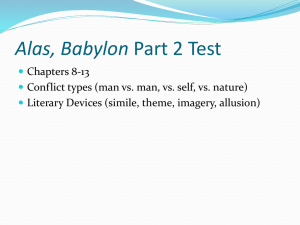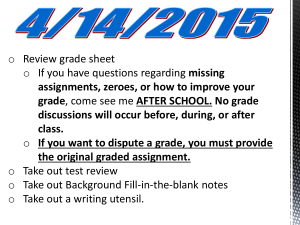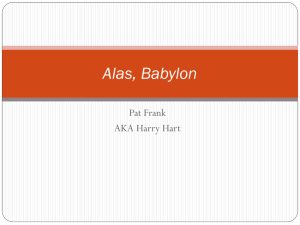Actions We Take Can Hurt or Harm Others
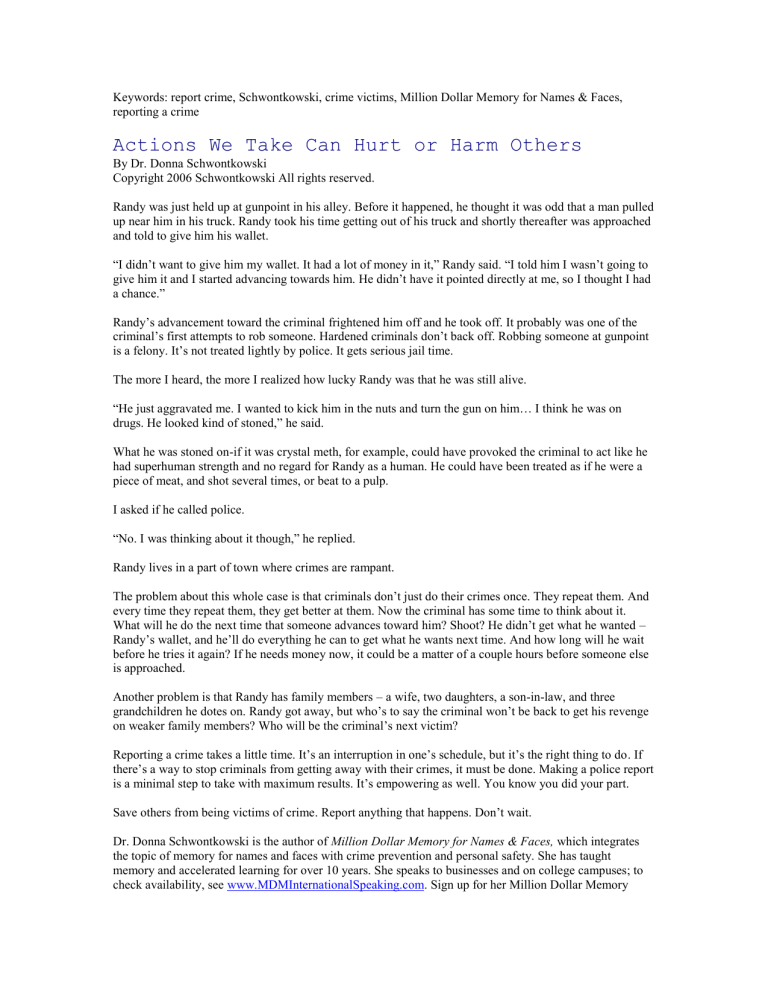
Keywords: report crime, Schwontkowski, crime victims, Million Dollar Memory for Names & Faces, reporting a crime
Actions We Take Can Hurt or Harm Others
By Dr. Donna Schwontkowski
Copyright 2006 Schwontkowski All rights reserved.
Randy was just held up at gunpoint in his alley. Before it happened, he thought it was odd that a man pulled up near him in his truck. Randy took his time getting out of his truck and shortly thereafter was approached and told to give him his wallet.
“I didn’t want to give him my wallet. It had a lot of money in it,” Randy said. “I told him I wasn’t going to give him it and I started advancing towards him. He didn’t have it pointed directly at me, so I thought I had a chance.”
Randy’s advancement toward the criminal frightened him off and he took off. It probably was one of the criminal’s first attempts to rob someone. Hardened criminals don’t back off. Robbing someone at gunpoint is a felony. It’s not treated lightly by police. It gets serious jail time.
The more I heard, the more I realized how lucky Randy was that he was still alive.
“He just aggravated me. I wanted to kick him in the nuts and turn the gun on him… I think he was on drugs. He looked kind of stoned,” he said.
What he was stoned on-if it was crystal meth, for example, could have provoked the criminal to act like he had superhuman strength and no regard for Randy as a human. He could have been treated as if he were a piece of meat, and shot several times, or beat to a pulp.
I asked if he called police.
“No. I was thinking about it though,” he replied.
Randy lives in a part of town where crimes are rampant.
The problem about this whole case is that criminals don’t just do their crimes once. They repeat them. And every time they repeat them, they get better at them. Now the criminal has some time to think about it.
What will he do the next time that someone advances toward him? Shoot? He didn’t get what he wanted –
Randy’s wallet, and he’ll do everything he can to get what he wants next time. And how long will he wait before he tries it again? If he needs money now, it could be a matter of a couple hours before someone else is approached.
Another problem is that Randy has family members – a wife, two daughters, a son-in-law, and three grandchildren he dotes on. Randy got away, but who’s to say the criminal won’t be back to get his revenge on weaker family members? Who will be the criminal’s next victim?
Reporting a crime takes a little time. It’s an interruption in one’s schedule, but it’s the right thing to do. If there’s a way to stop criminals from getting away with their crimes, it must be done. Making a police report is a minimal step to take with maximum results. It’s empowering as well. You know you did your part.
Save others from being victims of crime. Report anything that happens. Don’t wait.
Dr. Donna Schwontkowski is the author of Million Dollar Memory for Names & Faces, which integrates the topic of memory for names and faces with crime prevention and personal safety. She has taught memory and accelerated learning for over 10 years. She speaks to businesses and on college campuses; to check availability, see www.MDMInternationalSpeaking.com
. Sign up for her Million Dollar Memory
newsletter at www.MillionDollarMemory.net
and get access to the latest information in the fields of memory, face recognition and crime prevention once a month.
Feel free to reprint this article on your site as long as you leave the copyright in place and don’t change anything. Print media should contact Dr. Donna at DrDonna@MillionDollarMemory.net
.

